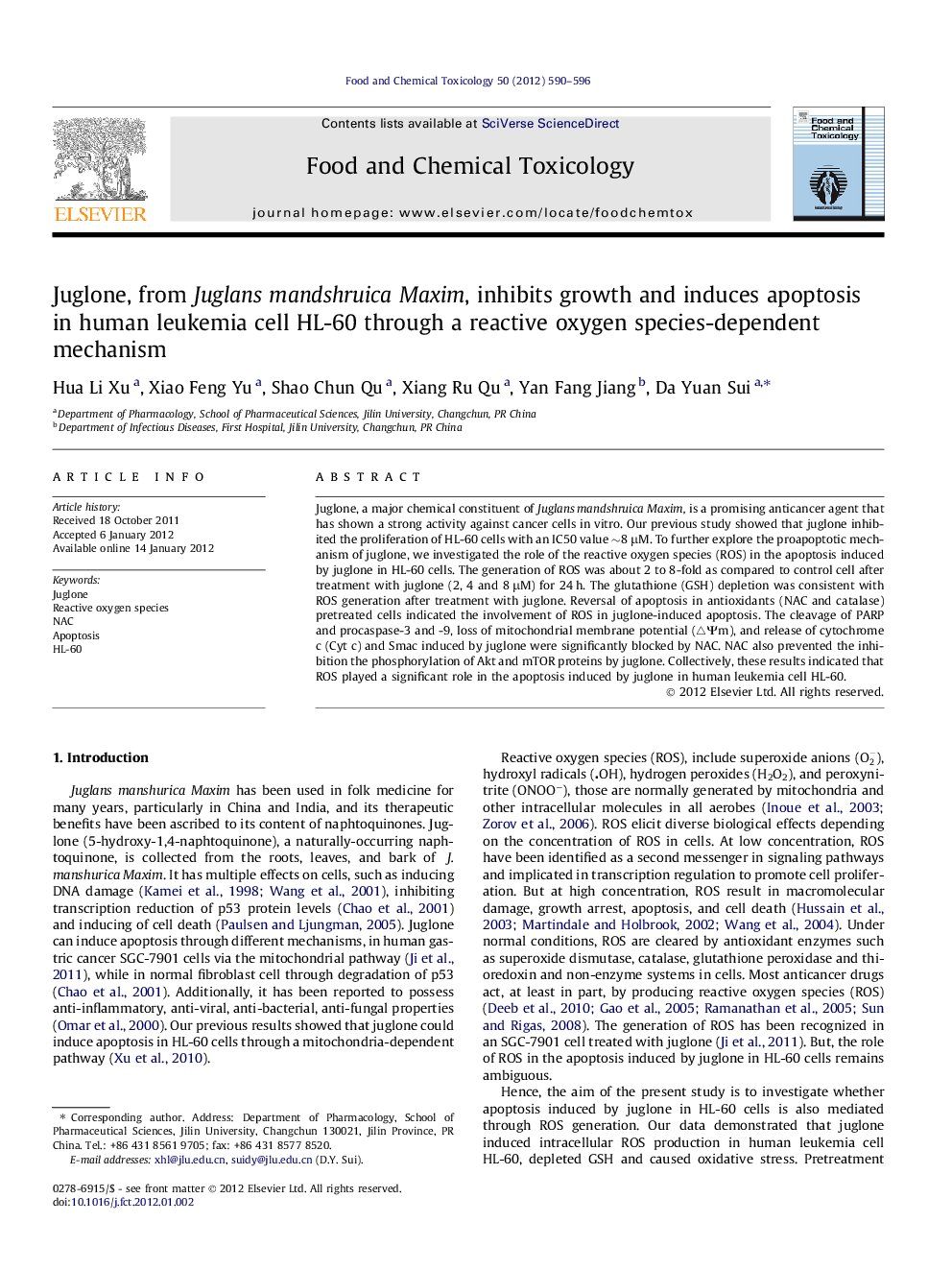| کد مقاله | کد نشریه | سال انتشار | مقاله انگلیسی | نسخه تمام متن |
|---|---|---|---|---|
| 5853529 | 1561795 | 2012 | 7 صفحه PDF | دانلود رایگان |

Juglone, a major chemical constituent of Juglans mandshruica Maxim, is a promising anticancer agent that has shown a strong activity against cancer cells in vitro. Our previous study showed that juglone inhibited the proliferation of HL-60 cells with an IC50 value â¼8 μM. To further explore the proapoptotic mechanism of juglone, we investigated the role of the reactive oxygen species (ROS) in the apoptosis induced by juglone in HL-60 cells. The generation of ROS was about 2 to 8-fold as compared to control cell after treatment with juglone (2, 4 and 8 μM) for 24 h. The glutathione (GSH) depletion was consistent with ROS generation after treatment with juglone. Reversal of apoptosis in antioxidants (NAC and catalase) pretreated cells indicated the involvement of ROS in juglone-induced apoptosis. The cleavage of PARP and procaspase-3 and -9, loss of mitochondrial membrane potential (â³Î¨m), and release of cytochrome c (Cyt c) and Smac induced by juglone were significantly blocked by NAC. NAC also prevented the inhibition the phosphorylation of Akt and mTOR proteins by juglone. Collectively, these results indicated that ROS played a significant role in the apoptosis induced by juglone in human leukemia cell HL-60.
⺠We found that juglone induced ROS generation and glutathione depletion. ⺠Apoptosis induced by juglone was inhibited by N-acetylcysteine (NAC). ⺠NAC prevented the inhibition the phosphorylation of Akt and mTOR proteins by juglone. ⺠Results indicated that ROS played a significant role in the apoptosis induced by juglone.
Journal: Food and Chemical Toxicology - Volume 50, Issues 3â4, MarchâApril 2012, Pages 590-596